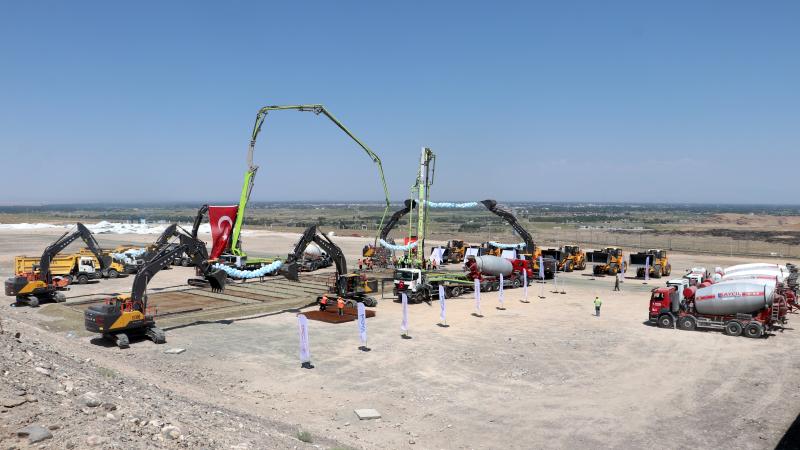The step marks a historic milestone for the Zengezur Corridor, which aims to establish a seamless transport chain across Asia, the Caucasus, Turkey, and Europe, reducing transit times and costs while bolstering trade and investment.
According to TRT Haber, Turkish officials claim that the corridor will enhance Turkey’s strategic role in the Middle Corridor—the trans-Eurasian route connecting China to Europe via Central Asia and the South Caucasus—by strengthening logistics integration and improving resilience in global supply chains. With construction now underway, Ankara is positioning the line as both a regional connector and a catalyst for growth in eastern Anatolia.
“We are beginning the construction of a rail link that will fully open the door to the Zengezur Corridor and usher in a new era of peace and prosperity in the South Caucasus,” Transport and Infrastructure Minister Abdulkadir Uraloğlu said at the groundbreaking ceremony. He described the project as a “steel international bond” that ties Turkey, Azerbaijan, and Armenia into a wider Asia-Europe network.
The Kars-Iğdır-Aralık-Dilucu line will be double-track, electrified, and equipped with signaling, featuring five stations. Engineering works include five tunnels, 19 cut-and-cover tunnels, three viaducts, 10 bridges, 144 underpasses, 27 overpasses, and 480 culverts. Officials are targeting completion by the end of 2029, with the minister indicating a build period of four to five years.
Beyond capacity, the railway is intended as a showcase of advanced engineering in tunnel and viaduct design. Its commissioning is expected to enhance freight flows along the Trans-Caspian route and complement the International North–South Transport Corridor, thereby strengthening Eurasian supply lines while expanding Turkey’s rail access to the Black Sea, Aegean, and Mediterranean coasts.
Uraloğlu placed the project within the first two decades of transport investment under President Recep Tayyip Erdoğan’s leadership, noting that nearly $300 billion has been invested in transport since 2002, including around $64 billion in rail. Turkey’s rail network has expanded to roughly 14,000 kilometers, underpinned by flagship links such as Marmaray and the Baku–Tbilisi–Kars line that anchor the “Iron Silk Road.”
President Erdoğan, in a written message to the ceremony, described the railway as a vital development initiative that will serve as a bridge between Turkey, Nakhchivan, and Azerbaijan. He said the line integral to the Zengezur passage would increase regional cooperation, lift production and exports in eastern and southeastern Anatolia, and reinforce tourism capacity along the Mediterranean. He added that extending rail connectivity among Russia, Azerbaijan, Armenia, and Turkey would have “highly positive” effects on regional trade.
Ankara projects that the network will reach 17,500 kilometers by 2028 and 28,600 kilometers by 2053, aiming to raise the rail’s share of freight from 5% to 22%. For Kars, Iğdır, Aralık, and Dilucu, the new line is expected to unlock opportunities in logistics, agriculture, and industry, with Kars serving as the “steel gate” to the corridor. Officials describe the railway as a path to greater competitiveness and prosperity—one they pledge to deliver on time and at scale.
Photo: TRT Haber
